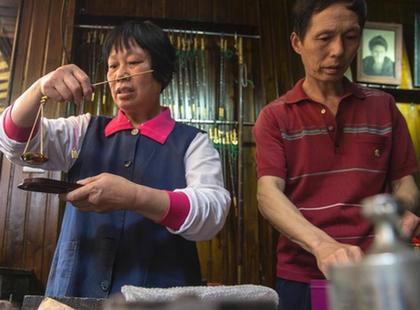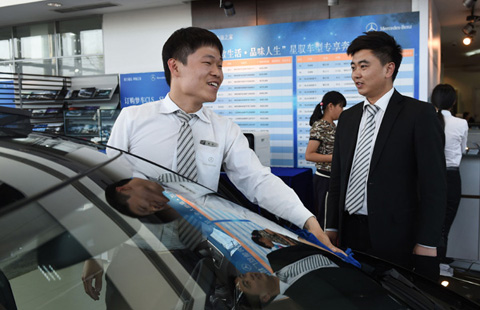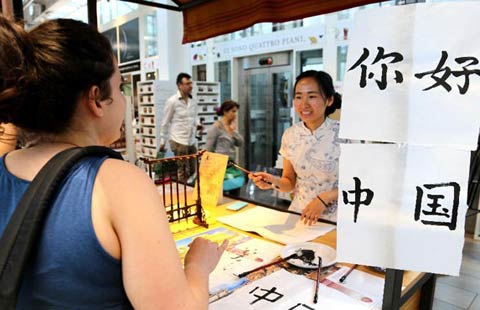Online sales agents face tougher times
By LI XUEQING (China Daily) Updated: 2015-05-25 08:21She said she makes $400 to $500 a month from working as an online agent, or about one-fifth of her total income. She charges 5 to 10 percent for each deal, far less than the 20 percent charged by professional agents.
"I charge my friends 5 percent at most," said Wei. "Besides, the Washington State sales tax rate is 6.5 percent, higher than most other states. Professional agents will usually make their purchases in other states."
Both Wei and Zhang said they feel that competition is rising. More people are entering the business while more US sellers are posting their goods to China.
"I've heard of people who bought houses with the money they made working as agents like us, but that would be inconceivable now," said Wei.
Big players in the e-commerce field are also jumping on the bandwagon.
JD.com signed a strategic cooperation agreement with the Administration Committee of the Hangzhou Airport Economic Zone in February. Hangzhou, Zhejiang province, is the third port JD has signed such a deal with, the other two are Guangzhou in southern China and Ningbo, which is just a few hours' drive from Shanghai and Hangzhou.
Amazon Inc announced in August its plan to set up a presence in the China (Shanghai) Pilot Free Trade Zone. Alibaba's cross-border e-commerce platform Tmall Global, which was launched in February last year, has attracted more than 5,000 brands including Costco Wholesale Corp.
Zhang has not felt threatened by the encroaching giants just yet, though.
"I don't think they have affected me much. Costco's Tmall store provides limited choices. You still have to buy a lot of other things from other channels," said Zhang.
Liu Run, president of Shanghai Run2me Management Consulting Co Ltd, takes a different view. He said the efforts of the e-commerce giants will make most of the individual online agents such as Zhang and Wei shut down their businesses eventually.
The selling mode of individual online agents is quite simple-they profit from the gap between the buying price and the selling price, he said.
"Some US and European products, cosmetics and electronic products in particular, are cheaper to buy from overseas than in China," said Liu, who specializes in researching the Internet economy.
However, stricter regulations are on the way to reduce the gap. A new regulation from the General Administration of Customs that came into effect on Aug 1 last year stipulates that all enterprises and individuals engaged in cross-border e-commerce have to provide a list of imported and exported items to customs authorities.
Wei declares everything before mailing it and the tariff is prepaid by her customers. She said many other agents refrain from doing so as it eats into their profits. Some make an agreement with their customers beforehand that if the packages are examined, the customers will pay the tariff, she said.
One agent, who declined to be named, said that the new regulation is making it harder for her to earn a living.
"Once the big players come up with better solutions in terms of logistics and customs clearance, goods sold on their platforms will be even cheaper. Individual agents will find it harder to survive because they can't build customer trust. They are unable to test and verify their sellers, but Tmall and JD can," said Liu.
- Chinese firms leave mark on Kenya expos
- China crude oil output rises 1.6%
- Chinese premier encourages firms to upgrade cooperation with Peru
- China's P2P lenders dance with bull stock market
- PPP can fill China's infrastructure financing gap: economist
- European ills put insurers within reach of more assets
- South Korea seeks deeper cooperation with Japan on AIIB
- Online sales agents face tougher times

















